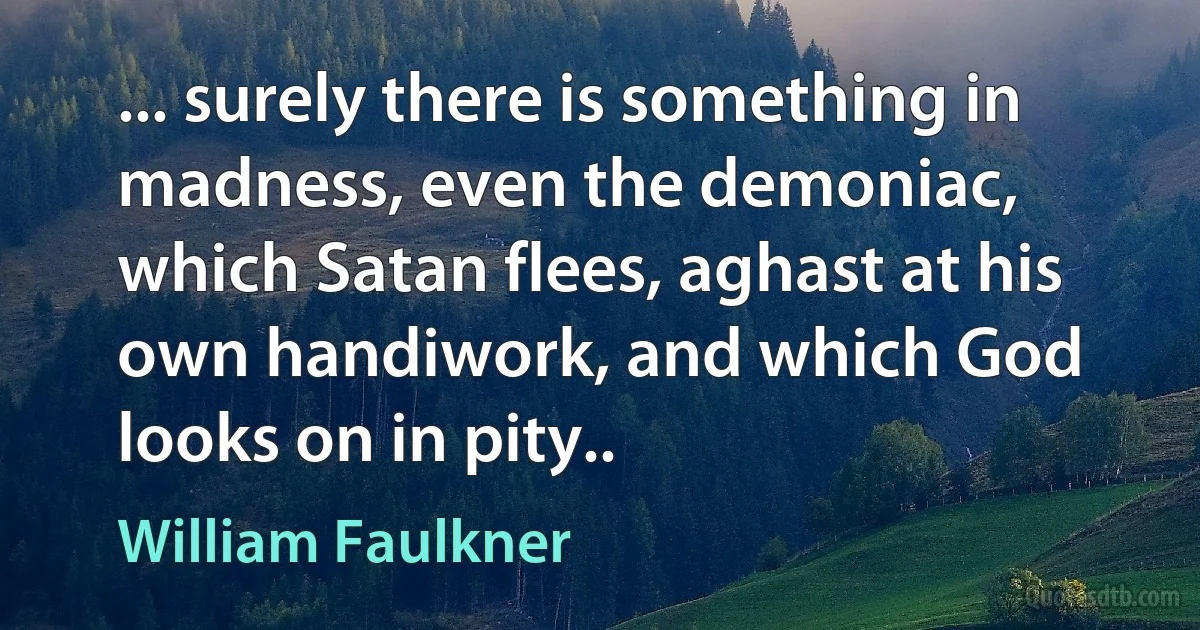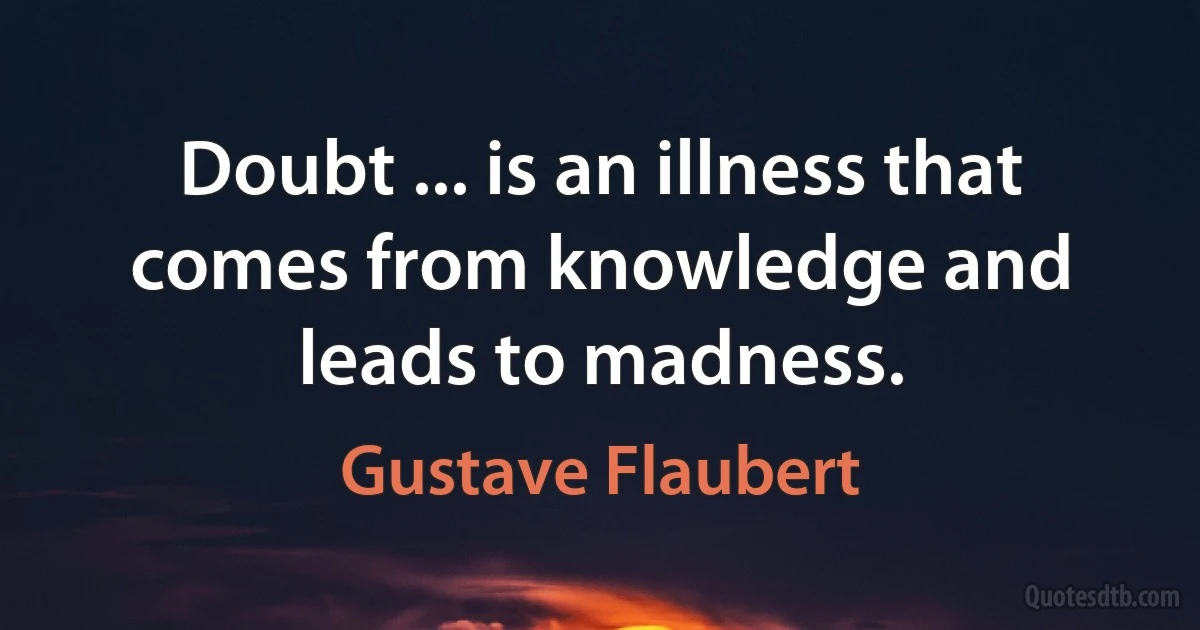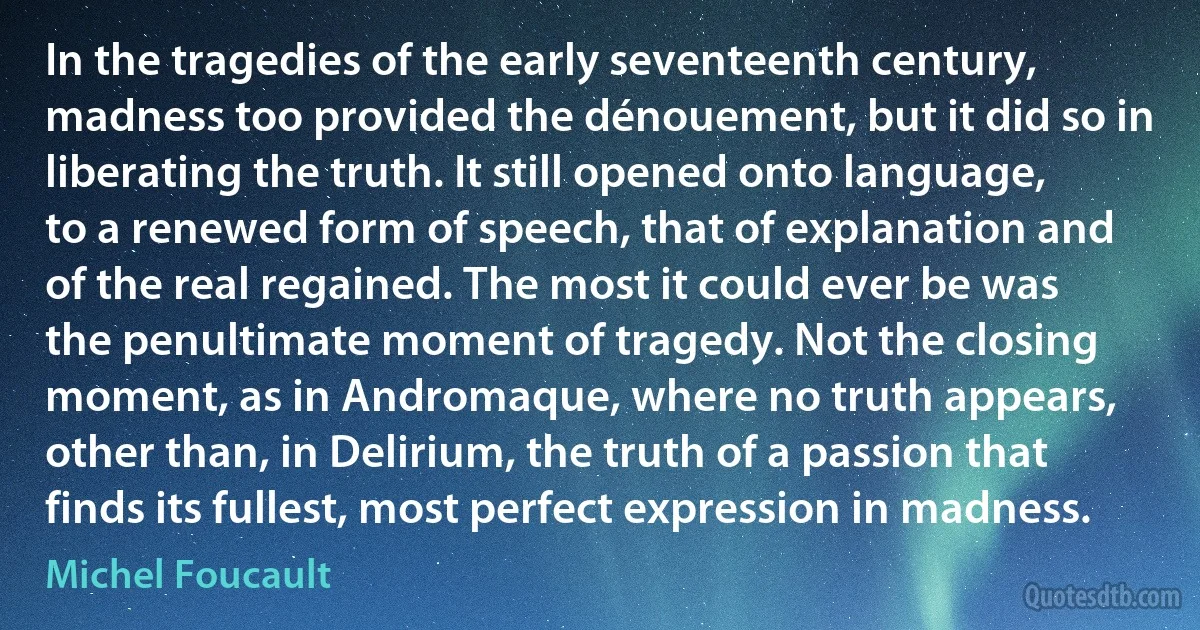Madness Quotes - page 14
People in eastern Congo are massacred to facilitate smart phone upgrades of ever diminishing marginal utility. Forests are felled to make "personalised heart shaped wooden cheese board sets”. Rivers are poisoned to manufacture talking fish. This is pathological consumption: a world-consuming epidemic of collective madness, rendered so normal by advertising and the media that we scarcely notice what has happened to us.

George Monbiot
Manhood stands tall and high, and becomes madness;
The self takes leave of being and becomes ecstasy.
When iron sated with blood embraces love,
It turns into a bewildered sitar string.
When time robs man of love and the loved one,
He sees the beloved's glory and his own.
How man sprouts when he sits down in dust!

Ghani Khan
Dearest,
I want to tell you that you have given me complete happiness. No one could have done more than you have done. Please believe that.
But I know that I shall never get over this: and I am wasting your life. It is this madness. Nothing anyone says can persuade me. You can work, and you will be much better without me. You see I can't write this even, which shows I am right. All I want to say is that until this disease came on we were perfectly happy. It was all due to you. No one could have been so good as you have been, from the very first day till now. Everyone knows that.
V.

Virginia Woolf
For we have in Latin only a few small streams and muddy puddles, while they have pure springs and rivers flowing in gold. I see that it is utter madness even to touch with the little finger that branch of theology that deals chiefly with the divine mysteries, unless one is also provided with the equipment of Greek.

Desiderius Erasmus
I don't think you can rely on Iran. I don't think you can rely on other radicals like the Taliban. They dispatched Al Qaida to bomb New York and Washington. What were they thinking? Were they that stupid? They weren't stupid. There is an irrationality there, and there is madness in this method.

Benjamin Netanyahu
In the history of madness, two events signal this change with singular clarity: in 1657, the founding of the Hôpital Général, and the Great Confinement of the poor; and in 1794, the liberation of the mad in chains at Bicêtre. Between these two singular and symmetrical events, something happened, whose ambiguity has perplexed historians of medicine: blind repression in an absolutist regime, according to some, and, according to others, the progressive discovery, by science and philanthropy, of madness in its positive truth. In fact, beneath these reversible meanings, a structure was taking shape, which did not undo that ambiguity but was decisive for it. This structure explains the passage from the medieval and humanist experience of madness to the experience that is our own, which confines madness in mental illness.

Michel Foucault
Recalling all the erroneous things that doctors have been able to say about sex or madness does us a fat lot of good. I think that what is currently politically important is to determine the regime of verediction established at a given moment ... on the basis of which you can now recognize, for example, that doctors in the nineteenth century said so many stupid things about sex. ... It is not so much the history of the true or the history of the false as the history of verediction which has a political significance.

Michel Foucault
There is little in common between the organised parading of madness in the eighteenth century and the freedom with which madness came to the fore during the Renaissance. The earlier age had found it everywhere, an integral element of each experience, both in images and in real life dangers. During the classical period, it was also on public view, but behind bars. When it manifested itself it was at a carefully controlled distance, under the watchful eye of a reason that denied all kinship with it, and felt quite unthreatened by any hint of resemblance. Madness had become a thing to be observed, no longer the monster within, but an animal moved by strange mechanisms, more beast than man, where all humanity had long since disappeared.

Michel Foucault
The question here is the same as the question I addressed with regard to madness, disease, delinquency and sexuality. In all of these cases, it was not a question of showing how these objects were for a long time hidden before being finally discovered, nor of showing how all these objects are only wicked illusions or ideological products to be dispelled in the light of reason finally having reached its zenith. It was a matter of showing by what conjunctions a whole set of practices-from the moment they become coordinated with a regime of truth-was able to make what does not exist (madness, disease, delinquency, sexuality, etcetera), nonetheless become something.

Michel Foucault
It is understandable then that tragic heroes, unlike the baroque characters who had preceded them, could never be mad, and that inversely madness could never take on the tragic value we have known since Nietzsche and Artaud. In the classical epoch, tragic characters and the mad face each other without any possible dialogue or common language, for the one can only pronounce the decisive language of being, where the truth of light and the depths of night meet in a flash, and the other repeats endlessly an indifferent murmur where the empty chatter of the day is cancelled out by the deceptive lies of the shadows.

Michel Foucault



